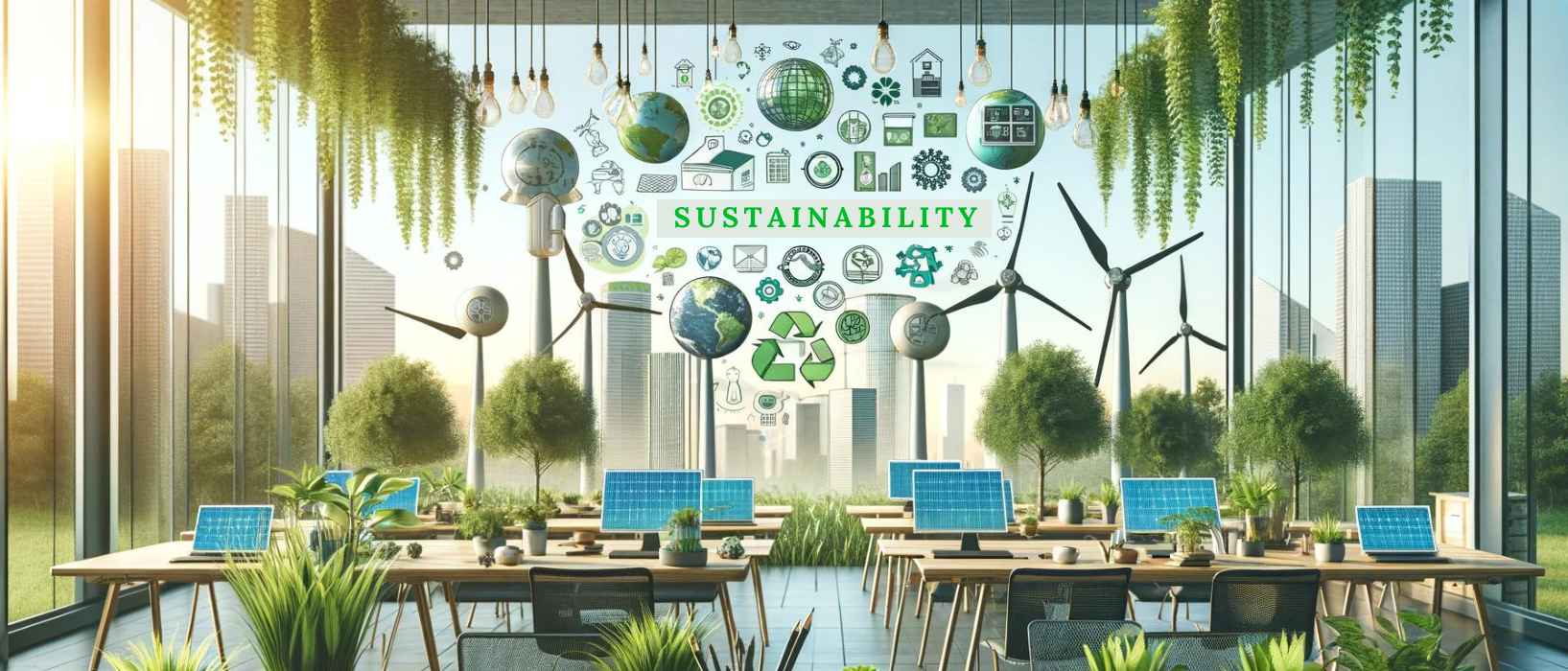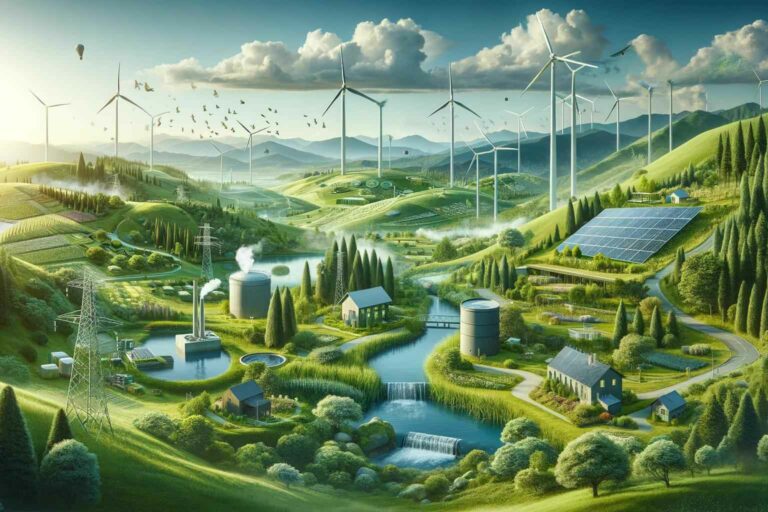
Sustainability Terms D-E: Introduction
Welcome back to Play It Green’s weekly business education series, where this week we discuss Sustainability Terms beginning D-E. Our commitment to nurturing a sustainable community shines through the power of knowledge. In this edition, we’re exploring essential sustainability terms from Diversity to Environmental Management System.
Understanding these terms is vital for embracing sustainable practices in our daily lives and businesses. Each term sheds light on different aspects of sustainability, guiding us towards more responsible and informed actions. Join us in exploring these key concepts, as they are essential in our collective effort to create a more sustainable and equitable world.
Sustainability Terms D-E: Diversity
Diversity in sustainability extends beyond human inclusivity to encompass biodiversity and ecosystem diversity. It involves appreciating and leveraging differences in backgrounds, cultures, and perspectives, which enrich decision-making and innovation in the business context.
Environmentally, diversity is about maintaining a variety of species and habitats, crucial for ecosystem resilience and functionality.
Embracing diversity leads to stronger, more adaptable communities and natural environments. It’s about recognising the interconnectedness of all life forms and the importance of varied perspectives and species in maintaining the balance and health of our planet.
Moreover, encouraging diversity in all its forms is essential for sustainable development, fostering a world where both human society and nature can thrive harmoniously.
For an in-depth understanding of diversity in sustainability, visit the United Nations page on Cultural Diversity and Biodiversity.

Sustainability Terms D-E: Eco-efficiency
Eco-efficiency combines environmental responsibility with economic efficiency. It’s about producing more goods and services with fewer resources and less waste. For businesses, this means optimising processes to reduce material and energy use, minimising pollution, and maximising product lifespans.
Eco-efficiency is a pathway towards sustainable growth, allowing companies to decrease their environmental footprint while improving profitability. For consumers, it translates into choosing products that align with sustainable living principles.
Not only that, but this approach is essential in our journey towards a sustainable future, as it encourages both producers and consumers to consider the environmental impact of their actions, fostering a culture where economic success is in harmony with ecological preservation.
The World Business Council for Sustainable Development offers insights into eco-efficiency at WBCSD Eco-Efficiency.

Sustainability Terms D-E: Eco-labelling
Eco-labelling is a tool that helps consumers identify products and services that meet high environmental standards. It involves marking items that have a reduced environmental impact throughout their lifecycle, from production to disposal.
This system encourages manufacturers to implement sustainable practices, as it provides a competitive edge in a market increasingly conscious of environmental impacts. For consumers, eco-labels demystify the process of making eco-friendly choices, offering a clear and trustworthy guide to purchasing decisions.
Accordingly, by promoting transparency and accountability, eco-labelling plays a crucial role in driving the market towards more sustainable options, aiding in the global effort to reduce environmental degradation and encourage responsible consumption.
Learn more about eco-labelling and its impact from the Global Ecolabelling Network.

Sustainability Terms D-E: Energy Efficiency
Energy efficiency is about maximising the effectiveness of energy use while minimising waste. This concept is key in reducing our environmental impact, as it leads to lower carbon emissions and decreased reliance on fossil fuels.
In homes and businesses, improving energy efficiency can involve upgrading to energy-saving appliances, enhancing insulation, and adopting smart energy management practices. Energy-efficient technologies not only contribute to environmental sustainability but also offer significant cost savings over time.
Furthermore, by prioritising energy efficiency, we can significantly reduce our ecological footprint, combat climate change, and move towards a more sustainable energy future. It’s a practical and essential aspect of sustainable living, benefiting both the planet and our wallets.
The International Energy Agency provides comprehensive information on energy efficiency at IEA Energy Efficiency.

Sustainability Terms D-E: Environmental Management System
An Environmental Management System (EMS) is a structured approach that organisations use to manage their environmental impacts. It involves the continuous improvement of environmental performance through efficient resource use, waste reduction, and compliance with environmental regulations.
Implementing an EMS, like ISO 14001, helps organisations systematically address environmental issues, enhancing their sustainability credentials. It’s not just about minimising harm; it’s about proactively contributing to environmental stewardship.
In addition, an effective EMS demonstrates a company’s commitment to environmental responsibility and can lead to improved operational efficiencies, cost savings, and a stronger corporate reputation. It is a crucial tool for businesses seeking to align their operations with sustainable principles and practices.
For details on Environmental Management Systems, particularly ISO 14001, visit ISO – Environmental Management.

Sustainability Terms D-E: Wrap-Up
We hope that this week’s journey through sustainability terms from Diversity to Environmental Management System has been enlightening. Each term offers unique insights into how we can better interact with our environment and society.
Understanding and implementing these concepts are key steps towards a more sustainable future. As we continue to explore and embrace these ideas, we move closer to achieving a harmonious balance between our needs and the health of our planet. Join us again next week as we uncover more ideas and concepts around sustainability to empower you on your green journey.
Play It Green: Empowering Your Sustainability Journey
Ready to take your commitment to sustainability to the next level? Play It Green stands as your partner in creating positive environmental change. From educational resources on sustainable practices and signposting to sustainable services to initiatives like tree planting and social giving, Play It Green offers a holistic approach to environmental stewardship.
Join us in the journey toward sustainability—embrace eco-conscious practices and be a force for positive change in our world. All whilst staying relevant, meeting legislation and aligning with the values of today’s consumers and employees.






